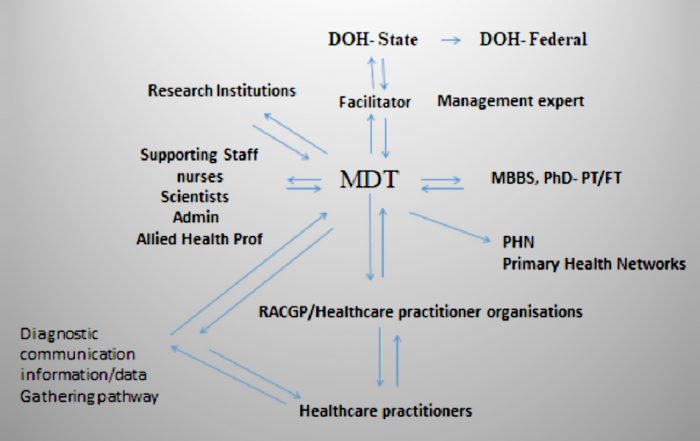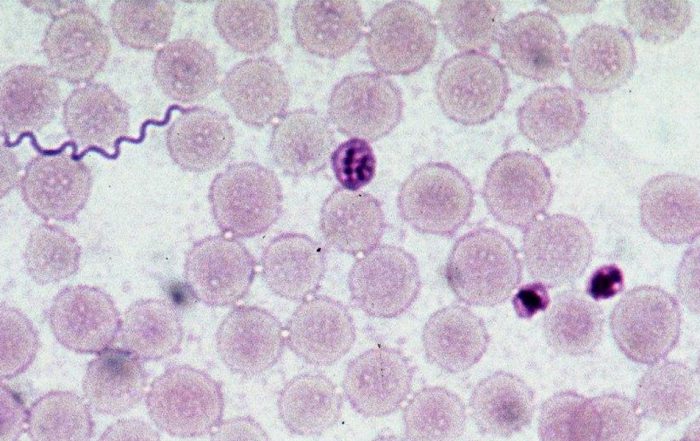
the Karl McManus Foundation
Karl McManus was bitten on the chest by a tick in July 2007 at a wildlife park on Sydney’s Northern Beaches. A week later he developed flu-like symptoms but, due to a lack of knowledge about tick borne diseases in Australia, the tell-tale signs and the potential seriousness of the tick bite were overlooked.
Five weeks later Karl experienced the further symptoms of a tick borne disease – sweat attacks, muscle twitches, mood swings and a darkening of his complexion. He became sensitive to light and noise and refused to see his friends. He began to lose dexterity in the fingers of his left hand and also started to get muscle wasting.
Karl’s own search on the internet indicated that he may have had Lyme or a form of Borreliosis or some similar tick borne disease, but because the NSW Government’s view (set out on its website at that time) indicated that there was no Lyme disease in Australia, it was thought unlikely that Karl had Lyme disease.
My medical search of the literature found very similar clinical cases to Karl’s. All these cases had neuroborreliosis, (Borreliosis with predominantly neurological symptoms), however, Karl’s ELISA assay blood tests in Australia came back negative for Lyme disease. Karl could see that he was getting worse on the IVIg, so this treatment was ceased and antibiotics were started. He then suffered a Herxheimer reaction (this occurs when large quantities of toxins are released into the body as bacteria are killed); this reaction confirmed that Karl had a serious infection and thus supported a Borreliosis like disease diagnosis. Antibiotics were subsequently tailored to Karl’s tolerance levels.
It was not until April 2008 when Karl’s blood was sent to the US accredited Tick-Borne Diseases Laboratory, IGeneX, and his tests came back positive not only for the Borrelia bacteria and but also for Babesia duncani and Rickettsia (both well known co-infections transmitted with Borrelia) that our suspicions of Borreliosis were confirmed.
At the same time, we found a journal article in which Dr David Martz described his own symptoms and recovery from what neurologists had initially diagnosed as motor neurone disease (MND) but in fact was Lyme borreliosis and other tick borne infections. An abstract of this article can be found at US National Library of Medicine.
We began the treatment protocol for Borreliosis described by Harvey and Martz, and Karl started to get his muscle strength back and was feeling better in himself. Unfortunately in August 2008, he got the flu and regressed. He experienced the symptoms of Babesiosis and Borreliosis– extreme night sweats and muscle twitches – as well as a loss of function in his hands. He could not find a doctor in all of Australia who would care and treat his neuroborreliosis.
Senate Committee recommendations-12, of which most urgent listed for Health Minister. Hon. Greg Hunt approves 6 of the most urgent KMF recommendations. KMF recommendations include research funding and Multidisciplinary Team for treatment of affected patients.
1st TBI Conference in Australia hosted by KMF at Kerry Packer Centre RPAH Sydney. Prof Baggoley closes the conference. Dr. Kenneth Liegner as OS speaker
The Foundation needs volunteers NOW.
Please help Now. There is a lot of work to be done and we need you. Even if it is only for a short time or regular time we can use your assistance. Every little bit counts.
- State Representatives
- Volunteer Co-ordinators
- Recruitment Manager
Become a Friend of the Karl McManus Foundation
Welcome back Brit Marie’s & Co to this year’s Harvest Market!
Every Dollar Counts and brings Australia one step closer to Accurate Blood Tests for Tick borne diseases that are currently going undetected. Become a part of our Wonderful Team dedicated to bringing an end Australian Lyme Like disease.
Your legacy will enable research to impact
By leaving a bequest to the Foundation you are not only helping in the recognition of Lyme disease and other tick borne infections, but enabling the elucidation whether Borrelia has a role in the pathology of these neurodegenerative disease states mentioned above. Your legacy will enable research to impact on a major challenge of medicine in the 21st century.









WHO WE ARE
Become a Friend of the Karl McManus Foundation and join in our Activities and Fundraising Events. Please help Now. There is a lot of work to be done and we need you.
The Karl McManus Foundation is for evidence-based research and clinical practice for tick-borne diseases and an advocate for better testing, treatment and education in Australia.
See more
Allen& Clark Policy and Regulatory Specialists awarded the tender for MDT model implementation
$3mil NHMRC grant recipients- Murdoch University ($1.9mil) and University Of Melb ($1.1mil) over 5 years.
Harvey et al find diverse RNA viruses in Australian ticks
WE ARE HERE TO HELP
Use the form to get in touch with us, please include your medical history and the suburb/town of tick bite along with your enquiry..
ARE YOU SICK?
Help us build a better picture of people suffering in Australia. Join the Australian Tick Bite and Associated Illness Database.
Support the Karl McManus Foundation with a Tax Deductible Donation today. Help Prevent and Research a Cure for Tick Borne Illness
Can’t make it? Please share to help us out! Thank you!!
See Translation

Get in Touch with Harmony United: Empowering Communities Through Unity
PO Box 3129
North Turramurra, NSW 2074
contact@karlmcmanusltd.org
National serology Reference Lab (NRL) report. A report showed that Lyme disease kits used in Australia do detect Lyme disease if patient are infected by it. I guess multinationals would not have invested millions creating these kits if they were not able to detect Lyme disease, common tick borne disease in the USA and Europe.
sequence Australian Borrelia and find genetically it is a hybrid of relapsing fever, Lyme borrelia and reptilian Borrelia, a unique clade. The hybrid nature may explain why people get positive results from Lyme disease tests s antibodies can cross-react with Lyme Borrelia proteins.

Similar heartbreaking experiences by hundreds of other families across Australia led to the recent Senate inquiry into the issue.
Their report — titled Growing evidence of an emerging tick-borne disease that causes a Lyme-like illness for many Australian patients — was released last week and among its recommendations called for the Australian Government to increase funding for research into tick-borne pathogens “as a matter of urgency”. I fully support that — given the current funding is almost zero.
Lyme disease is a controversial label and a misunderstood disease. Simply put, it is caused by just a small part of the family of Borrelia bacteria. Lyme disease is a uniquely American infectious disease. However, almost every continent in the world has its own variety.
